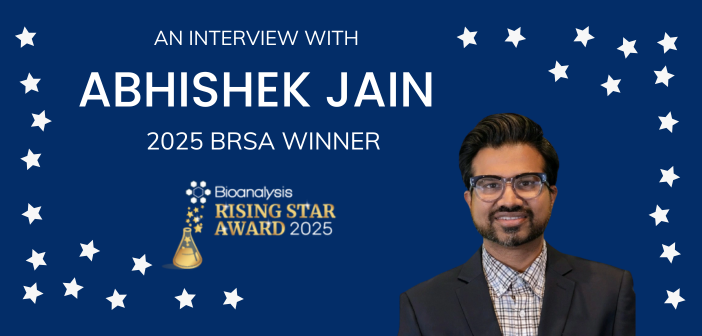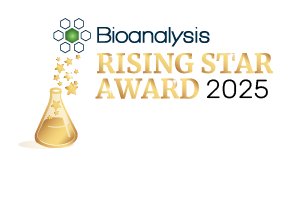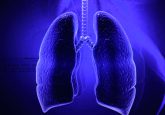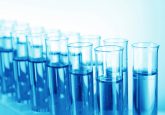Bioanalysis Rising Star Award: an interview with the 2025 winner

In this interview, Abhishek discusses the work that led to his nomination, what he hopes to achieve in the next few years and why it is important that awards like the BRSA exist. For those thinking about nominating themselves or a colleague for the 2025 award, Abhishek encourages young bioanalytical scientists to be authentic and let your science speak through your passion!

Abhishek Jain
Principal Investigator
Wadsworth Center, New York State Department of Health
Dr Abhishek Jain is a Principal Investigator at the New York State Department of Health (NY, USA). Previously a research faculty member at Yale School of Public Health (CT, USA), his research integrates LC–MS untargeted metabolomics, gut microbiome analyses, and human–host co-metabolism to uncover novel pathways in health and cancer. He created a colorectal cancer metabolome atlas from 800 patient samples, revealing tumor heterogeneity and mechanisms of EGFR inhibitor resistance in right- versus left-sided liver metastases. His work has expanded the Human Metabolome Database, helped to develop widely adopted dried blood spot metabolomics methods, and earned the Yale Research Impact Award, the NIH-NCATS KL2 Scholar grant, the Early Career Member Award from the International Metabolomics Society, the Outstanding Early Career Faculty Award from the Association of Clinical and Translational Science (DC, USA), and recognition from the Society of Surgical Oncology (IL, USA).
-
- How did you feel when you found out that you won the 2025 Bioanalysis Rising Star Award?
- Why do you think it is important that awards like this exist?
- Tell us about your work that led to your nomination? Are you currently working on any interesting research?
- What’s one piece of career advice you received that you still carry with you today?
- Is there anything that you would particularly like to achieve in the next few years of your career? Has winning the award influenced this?
- Do you have any tips for future nominees of the award?
How did you feel when you found out that you won the 2025 Bioanalysis Rising Star Award?
I was truly humbled and grateful to receive the 2025 BRSA. This recognition felt deeply rewarding—not just for me, but for everyone who has contributed to my journey, including mentors, collaborators and students. It validated years of method development, troubleshooting and persistence in exploring how metabolomics and microbiome science can transform cancer research. It also reminded me how impactful open and collaborative bioanalytical work can be in advancing human health.
Why do you think it is important that awards like this exist?
Awards like the Bioanalysis Rising Star Award are essential for fostering innovation and recognizing early-career scientists who often work at the interface of multiple disciplines. They help amplify voices that bring new ideas and tools into the bioanalytical community. Recognition at this stage not only provides motivation but also enhances visibility, opening doors for new collaborations and translational opportunities that can accelerate scientific discovery.
Tell us about your work that led to your nomination? Are you currently working on any interesting research?
My research focuses on translating bioanalytical discoveries into clinical applications that can advance cancer diagnosis, prevention and treatment. By integrating untargeted metabolomics, gut microbiology and translational cancer science, my work has identified new metabolic pathways that connect microbial activity, environmental exposures, and tumor biology. For example, my colorectal cancer metabolomics studies have provided a foundation for developing more individualized treatment strategies based on tumor subtype and location, helping to refine precision oncology approaches.
I have also contributed to exposomics by discovering a class of previously unknown sulfated metabolites, now included in the Human Metabolome Database. These findings expanded our understanding of host–microbiome co-metabolism and its role in environmental and dietary exposures. In parallel, I developed dried blood spot (DBS) metabolomics methods that overcome hematocrit bias, enabling more accurate biomarker analysis in population and pediatric studies where sample volume is limited. These innovations have strengthened the bridge between analytical chemistry and clinical and public health applications.
My contributions have been recognized through several national and international awards, including the Metabolomics Society Early Career Member Award, the Outstanding Early Career Faculty Award from the Association for Clinical and Translational Science, the Yale School of Public Health Research Impact Award, and the KL2 Research Scholar grant (NIH-NCATS)—each reflecting the translational and collaborative impact of my work.
I recently established my independent laboratory as a Principal Investigator at the New York State Department of Health, where we integrate human cohorts, patient-derived organoids, and in-vitro gut microbial cultures to investigate how the microbiome transforms diet and environmental pollutants into metabolites that modulate cancer risk, progression and therapy response. Complementing the clinical arm of my work, I have developed one of the world’s most extensive gut microbial metabolomics resources—310 in-vitro bacterial cultures and 112 monocolonized mouse models—which now support our mechanistic studies. Our ultimate goal is to translate these metabolic insights into diagnostic and preventive strategies, bridging analytical innovation with clinical application.
What’s one piece of career advice you received that you still carry with you today?
One piece of advice that has stayed with me is: “Don’t chase trends—solve problems that truly matter.” In bioanalysis, it’s easy to get caught up in technology or the latest methods, but real impact comes from asking biologically meaningful questions and developing rigorous, reproducible approaches to answer them. Alongside this, I’ve learned to enjoy the work I do and always do the best I can, without self-rejecting.
I also remind myself that winning and losing, gain and loss, are all part of the journey. Maintaining perseverance and resilience through challenges is essential, and ultimately, everything will be alright. This mindset has guided both my scientific path and my mentorship approach, allowing me to stay focused on meaningful research while navigating the natural ups and downs of a career in science.
Is there anything that you would particularly like to achieve in the next few years of your career? Has winning the award influenced this?
In the next few years, my goal is to establish a multidisciplinary research program that integrates bioanalytical chemistry, microbiome science and cancer epidemiology to understand how microbial and dietary metabolites influence cancer risk and treatment outcomes. Winning this award has strengthened my commitment to advancing open-access metabolomics resources and mentoring the next generation of analytical scientists who value both precision and collaboration.
Do you have any tips for future nominees of the award?
Be authentic and let your science speak through your passion. Focus on how your work advances the field—whether it’s through technical innovation, resource development or translational insight. Don’t hesitate to share challenges and how you overcame them; perseverance and creativity are at the heart of bioanalysis. Most importantly, collaborate widely—some of the most transformative ideas come from diverse partnerships across disciplines.
The opinions expressed in this interview are those of the interviewee and do not necessarily reflect the views of Bioanalysis Zone or Taylor & Francis Group.
As the winner of the BRSA, Abhishek will present his work on a Bioanalysis Zone webinar in December 2025. He also receives a 1-year subscription to Bioanalysis, a contribution towards travel costs to attend a conference, complementary free access publication of his next accepted paper, and an exclusive interview with Bioanalysis Zone.
On receiving the award, Abhishek commented:
“I am deeply honored to receive the BRSA. This recognition inspires me to continue advancing bioanalytical research that bridges metabolomics, microbiome science and human health. I am grateful to my mentors, collaborators and the scientific community for their support and encouragement, and I look forward to contributing further to innovations that translate cutting-edge analytical science into meaningful biomedical insights.”
Abhishek won the public vote after three finalists were shortlisted by the judges. The other finalists were Amanda Smythers (Harvard Medical School; MA, USA) and Alejandro Rodriguez (Genentech; CA, USA).
Videos introducing the research of each finalist are available to view at www.bioanalysis-zone.com/awards.
Don’t forget to check out Abhishek’s webinar: Metabolomics and microbiomics: dietary and environmental factors in cancer! Register now using the button below!






